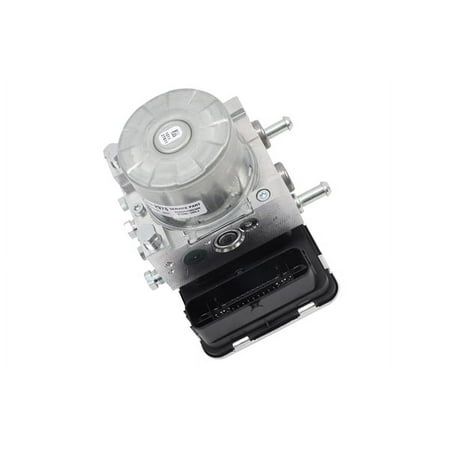Repair instructions
Electronic Brake Control Module Failure: Its Symptoms
The Electronic Brake Control Module (EBCM) is the brain of your vehicle’s electronic braking system. This microprocessor oversees key braking functions, including anti-lock braking (ABS) and traction control (TCS). Like other car components, the EBCM can wear out or fail unexpectedly, potentially affecting your safety. Knowing the signs of EBCM failure can help you address issues promptly and keep your vehicle performing safely.
Contents:
- Common Symptoms of EBCM Failure
- ABS Warning Light Illuminates
- Check Engine Light Comes On
- ABS Performance Issues
- Traction Control Problems
- What Is an Electronic Brake Control Module (EBCM)?
- Where Is the EBCM Located?
- EBCM Function: What Does It Do?
- How to Replace Your EBCM
1. Common Symptoms of EBCM Failure
The Electronic Brake Control Module (EBCM) is critical for your vehicle’s safety systems, including ABS and TCS. When it malfunctions, you’ll likely notice specific warning signs. Diagnosing and repairing EBCM issues early can help you avoid costly damage and ensure your vehicle remains roadworthy.

Here are the most common symptoms to watch for:
ABS Warning Light Illuminates
The EBCM is closely tied to your vehicle’s anti-lock braking system (ABS). If the EBCM is malfunctioning, it can trigger the ABS light on your dashboard. The system may also perform erratically or fail to engage when needed. When this light comes on, it’s a strong indicator that something’s wrong with the EBCM.
Check Engine Light Comes On
While the check engine light is commonly associated with engine issues, it can also point to problems with the EBCM. In older vehicles that don’t have a dedicated ABS warning light, the check engine light may turn on as a result of a faulty EBCM.
ABS Performance Issues
When the EBCM starts to fail, the ABS may not work properly. In the worst case, it might deactivate entirely. This is particularly dangerous, as it can increase your chances of skidding in slippery conditions or during sudden braking. Without a functioning ABS, you lose critical braking support, especially in emergency maneuvers.
Traction Control System (TCS) Problems
Your vehicle’s Traction Control System (TCS) is designed to help maintain tire grip by reducing power to slipping wheels or applying brake force when necessary. If the EBCM malfunctions, it can directly affect the TCS. A warning light for TCS will likely appear on the dashboard if the EBCM is the culprit. Without proper TCS, driving in wet or icy conditions becomes much more hazardous.
2. What Is an Electronic Brake Control Module (EBCM)?
The Electronic Brake Control Module (EBCM) is a microprocessor that manages your vehicle’s electronic braking systems. This includes monitoring the Anti-lock Braking System (ABS) and Traction Control System (TCS). The EBCM uses data from various sensors to assess road conditions and adjust braking pressure, ensuring maximum safety during critical driving moments.
3. Where Is the EBCM Located?
Typically, the EBCM is located in the engine bay, near the brake fluid reservoir and often mounted on the Brake Pressure Modulator Valve (BMPV). It’s connected to the brake system lines and receives electrical signals that help it regulate braking force. Consult your owner’s manual for the precise location in your vehicle.
4. What Does the EBCM Do?
The EBCM processes information from the ABS and TCS sensors and activates the necessary braking response. If the system detects a wheel spinning too quickly—indicating potential skidding—the EBCM engages the ABS to apply braking force to that wheel, reducing the risk of loss of control.
Essentially, the EBCM coordinates the functions of modern braking systems, replacing older modules for ABS and TCS in more advanced vehicles.
5. How to Replace Your EBCM
Replacing an EBCM involves sourcing a replacement part, which can cost anywhere from $120 to $260. Keep in mind that after replacement, the module will likely need to be reprogrammed to work with your vehicle’s system. For this reason, EBCM replacement is typically a job best handled by a professional mechanic.
